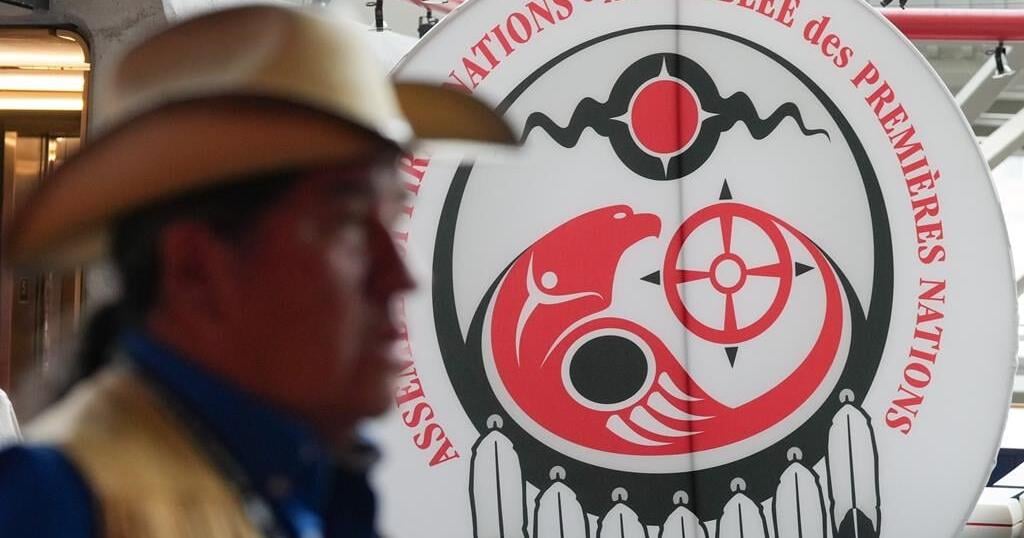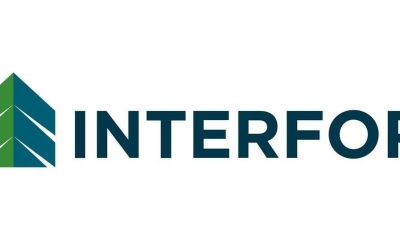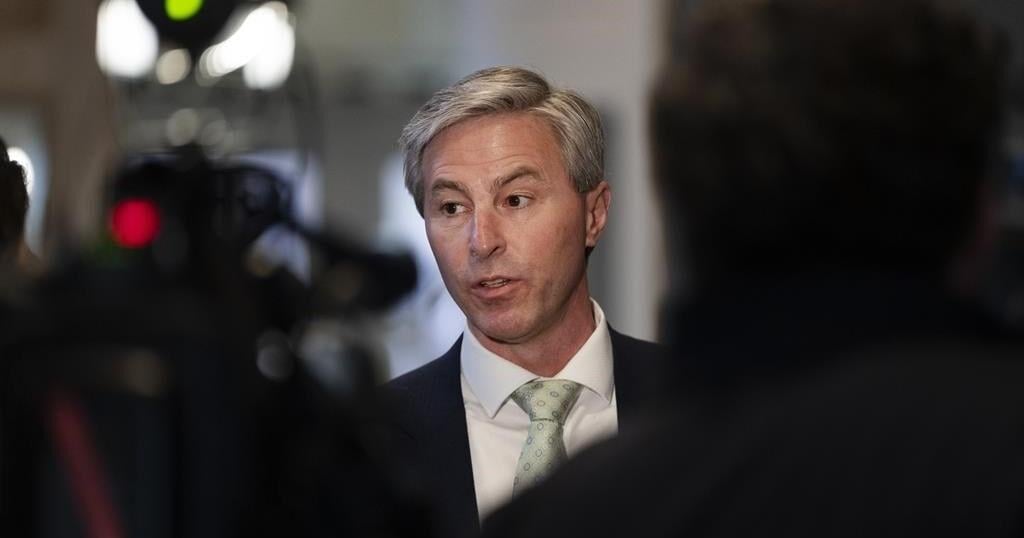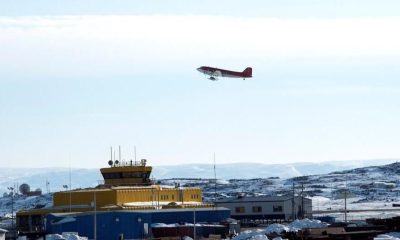FREDERICTON – New Brunswick Progressive Conservative leader has been noticeably more absent on the campaign trail compared to his two main opponents — and has made significantly fewer election promises.
Since the Sept. 19 election call, there have been at least 10 days on which Tory Leader Blaine Higgs has had no public events. Higgs, who is vying for a third term as premier, was also absent from the second leaders debate, held Oct. 9.
“Maybe that’s to keep you guessing,” he said with a laugh at a news conference last week when asked about his availability, or lack thereof.
On Saturday, the Tories released their platform with no fanfare and no advance notice. It is two pages long and contains 11 promises, including a two per cent cut to the harmonized sales tax, at a cost of $450 million a year. It also promises to continue to “respect parents” — a reference to a 2023 policy change requiring teachers to ask parents before using the preferred pronouns of trans students under 16.
The lack of detail is the point, it seems. “Our Progressive Conservative New Brunswick team will not try to buy your vote with 100 promises,” Higgs said on Page 2 of the platform, which doesn’t include a total cost for the 11 promises.
New Brunswick’s Progressive Conservatives are conducting a “super quiet” campaign, says J.P. Lewis, a political science professor at the University of New Brunswick in Saint John. It goes against the norm of how parties have traditionally campaigned in provincial or federal elections, he said.
“It does fit with the fact that they aren’t announcing much, and it fits with (Higgs’s) attitude that, campaign promises can get governments into trouble because it ties them to expenses that can have an effect on the provincial purse,” Lewis said.
Higgs, however, maintains that his schedule is rather charged — just not when the media are around.
“We’re not making announcements every day,” the Tory leader said last week. “We’re visiting in communities. We’re talking to people. We’re visiting different ridings with their candidates, and we’re out there …. being seen for the people who are going to support us.”
“But rest assured, these are full days. And if you have any doubt, ask my wife.”
Still, Lewis says Higgs’s schedule is “very different” from what Canadians are used to.
“You could see a leader taking maybe a day off a week, but it when it becomes multiple days off … I think it’s very, very different than what we’re used to.”
The Liberals and Greens, meanwhile, have chosen a contrasting approach, with events on almost every day of the campaign.
Liberal Leader Susan Holt’s campaign said she has so far taken off two days, including Thanksgiving Monday. Her election platform, at 30 pages, contains roughly 100 promises, including to build 30 community care clinics across the province and remove the provincial sales tax on electricity bills for residential customers. The Liberals costed platform is about $1.2 billion in new spending over the term of a majority mandate.
In an interview Tuesday, Holt said Higgs has been “absent” this election.
“We’ve been told he’s been hidden by his campaign team. They don’t want him out at all for fear that he’ll say something else that offends and disrespects New Brunswickers.”
The Green Party campaign said Leader David Coon took off Thanksgiving Sunday. His party’s platform contains more than 100 promises, including to invest $380 million annually to fix the primary health-care system, and implement a guaranteed livable income. The promises would add $2.9 to $4 billion to the province’s expenditures over a majority-mandate term.
Higgs, Coon said, is being kept away from the campaign trail by “handlers” out of fear he will speak too much and say things that will make him unelectable.
“All he’s offering is to keep doing the same thing he’s done for the last six years …. He’s travelling around in an empty bus, blowing diesel fumes into the atmosphere, achieving nothing.”
This report by The Canadian Press was first published Oct. 15, 2024.
— With files from Michael MacDonald in Halifax.


































